-
 +15 +2
+15 +2‘Bionic mushrooms’ that generate electricity created by scientists
A regular shop-bought mushroom has been turned into an electricity generator in a process scientists hope will one day be used to power devices. The “bionic mushroom” was covered with bacteria capable of producing electricity and strands of graphene that collected the current. Shining a light on the structure activated the bacteria’s ability to photosynthesise, and as the cells harvested this glow they generated a small amount of electricity known as a “photocurrent”.
-
 +12 +2
+12 +2These fragile, futuristic batteries run longer with a little oil
Batteries that use aluminum and oxygen normally live fast and die young. But a new design could help these high-energy devices endure. Aluminum-air batteries are promising candidates for a new generation of non-rechargeable batteries, because they’re super lightweight and compact. The batteries, however, aren’t widely used because their internal components quickly degrade each other.
-
 +15 +2
+15 +2Swarms of bionic bees could monitor farms with electronic backpacks
As clever as we humans like to think we are, plenty of things we invent have already been done more effectively by nature. Our drones are pretty handy, but nature's drones – bees – are far more efficient. Rather than building our own buzzing robots from scratch, researchers at the University of Washington have created tiny suites of sensors that bees can wear like backpacks, to help gather data from their environment.
-
 +24 +3
+24 +3In a Sea of Plastic and Metal, a Block of Wood Stands Out at CES 2019
What does it mean that one of my favorite demos at CES 2019 — the world’s foremost technology show — was a block of wood? Maybe that I’ve been spending too much time in my garage with a table saw. Maybe that we’re collectively suffering from a bad case of screen fatigue. Maybe both. But if the crowd surrounding Mui is any indication, I’m not the only one smitten with the Kyoto-based company’s head-smackingly simple approach to technology.
-
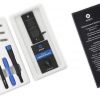 +13 +1
+13 +1iFixit's Do-it-Yourself iPhone Battery Replacement Kits to Remain $29.99 Until End of 2019
iFixit today announced that its do-it-yourself iPhone battery replacement kits will remain $29.99 until the end of 2019. The repair website lowered the price of its kits in late 2017 to match Apple's discounted iPhone battery replacement fee of $29, which ended on December 31, 2018. Apple now charges $49 to replace the battery in the iPhone 6 through iPhone 8 Plus and $69 for the iPhone X and newer outside of warranty.
-
 +10 +1
+10 +1I held the future in my hands, and it was foldable
Huawei’s zealousness about keeping journalists’ hands off its new Mate X foldable phone slipped a little today, and I got to hold and fold it for myself. The hands-on experience with this device confirmed and deepened all the feelings I had about it already: it’s a polished, refined physical design that gets us closest to the ideal of a foldable with minimal compromises.
-
 +12 +1
+12 +1Samsung Electronics Doubling Current Smartphone Storage Speed as it Begins Mass Production of First 512GB eUFS 3.0
Samsung Electronics the world leader in advanced memory technology, today announced that it has begun mass producing the industry’s first 512-gigabyte (GB) embedded Universal Flash Storage (eUFS) 3.0 for next-generation mobile devices. In line with the latest eUFS 3.0 specification, the new Samsung memory delivers twice the speed of the previous eUFS storage (eUFS 2.1), allowing mobile memory to support seamless user experiences in future smartphones with ultra-large high-resolution screens.
-
 +29 +1
+29 +1Global Initiative Mines Retired Hard Disk Drives for Materials and Magnets
Every year in the United States, roughly 20 million hard drives are retired from data centers
-
 +10 +2
+10 +2AirPods, the world’s most popular wireless headphones, are getting even better
Apple today announced new AirPods, the second generation of the world’s most popular wireless headphones. AirPods revolutionized the wireless audio experience with a breakthrough design and the new AirPods build on the magical experience customers love. The new Apple-designed H1 chip, developed specifically for headphones, delivers performance efficiencies, faster connect times, more talk time and the convenience of hands-free "Hey Siri.” AirPods come with either a standard charging case or a new Wireless Charging Case for convenient charging at home and on the go.
-
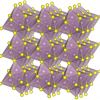 +17 +2
+17 +2New approach could boost energy capacity of lithium batteries
Researchers around the globe have been on a quest for batteries that pack a punch but are smaller and lighter than today’s versions, potentially enabling electric cars to travel further or portable electronics to run for longer without recharging. Now, researchers at MIT and in China say they’ve made a major advance in this area, with a new version of a key component for lithium batteries, the cathode.
-
 +10 +2
+10 +2A Cell Phone Carrier Breaks With Big Telecom, Announces Support for Right to Repair Legislation
Big tech has spent years fighting legislation that would make it easier for consumers to repair their own electronic devices. Though they generally don’t manufacture any electronics, mobile carriers have joined the likes of Apple, Microsoft, and John Deere and have lobbied against right to repair legislation through the CTIA, a trade organization that represents Verizon, T-Mobile, Sprint, AT&T, and other big telecom companies. But one cell phone provider has broken ranks with the rest of the industry. Ting Mobile not only doesn’t oppose right to repair legislation—it has decided to actively support it.
-
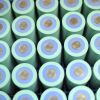 +39 +7
+39 +7Battery Reality: There’s Nothing Better Than Lithium-Ion Coming Soon
Falling prices and sunk costs mean that the reigning storage technology has a lasting lead.
-
 +14 +3
+14 +3Samsung’s Galaxy Fold Smartphone Release Delayed
Samsung is delaying the rollout of its Galaxy Fold smartphone until at least next month, the latest fallout from a product headache that began with tech reviewers reporting their test devices had malfunctioned.
-
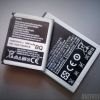 +32 +5
+32 +5Solid-state battery — the successor to Li-ion — takes another step closer to our smartphones
Lithium-ion (Li-ion) batteries are the rechargeable cell of choice for smartphones and most of today’s other battery-powered gadgets. Despite their prevalence, Li-ion batteries are limited in power density, have reasonably short lifespans, and can become a fire hazard if damaged or incorrectly charged. These drawbacks could be a thing of the past in the not-too-distant future if gadgets move over to solid-state battery technologies.
-
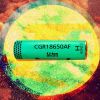 +19 +3
+19 +3When Your Amazon Purchase Explodes
Shoddily made lithium-ion batteries can cause serious injury and even death. How do they keep ending up in consumers’ hands?
-
 +8 +2
+8 +2Guy builds a Pebble-like smartwatch with week-long battery life
A Redditor built his own custom smartwatch because he wasn't happy with the options available on the market.
-
 +16 +2
+16 +2You've been charging your smartphone all wrong
I hate to be the bearer of bad news, but you might be reducing your phone battery's lifespan with certain charging behaviors. Specifically, if you often charge your phone overnight or keep it plugged in for hours after it's reached 100%, you're accelerating the aging process of lithium-ion smartphone batteries. "If you're going to charge your phone to 100% and keep it at 100% — just keep on charging and charging overnight — this will have negative influence on aging," Dominik Schulte, the managing director of the German battery-technology consultancy firm BatterieIngenieure, told Business Insider.
-
 +24 +2
+24 +2Beats Powerbeats Pro review: Bulkier than AirPods, but with better sound
Bulky charging case and high price tag aside, the Powerbeats Pro combines all the features that make the AirPods great while delivering richer sound and better battery life in a design that won't fall out of your ears.
-
 +4 +1
+4 +1Researchers find way to build potassium-oxygen batteries that last longer
Researchers have built a more efficient, more reliable potassium-oxygen battery, a step toward a potential solution for energy storage on the nation's power grid and longer-lasting batteries in cell phones and laptops. In a study published Friday in the journal Batteries and Supercaps, researchers from The Ohio State University detailed their findings centering around the construction of the battery's cathode, which stores the energy produced by a chemical reaction in a metal-oxygen or metal-air battery.
-
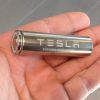 +30 +6
+30 +6Tesla battery researcher is ‘excited’ about new battery tech developed by the Army
A new Li-ion battery technology developed by the US Army has piqued the interest of Jeff Dahn, Tesla’s main battery research partner.
Submit a link
Start a discussion




















